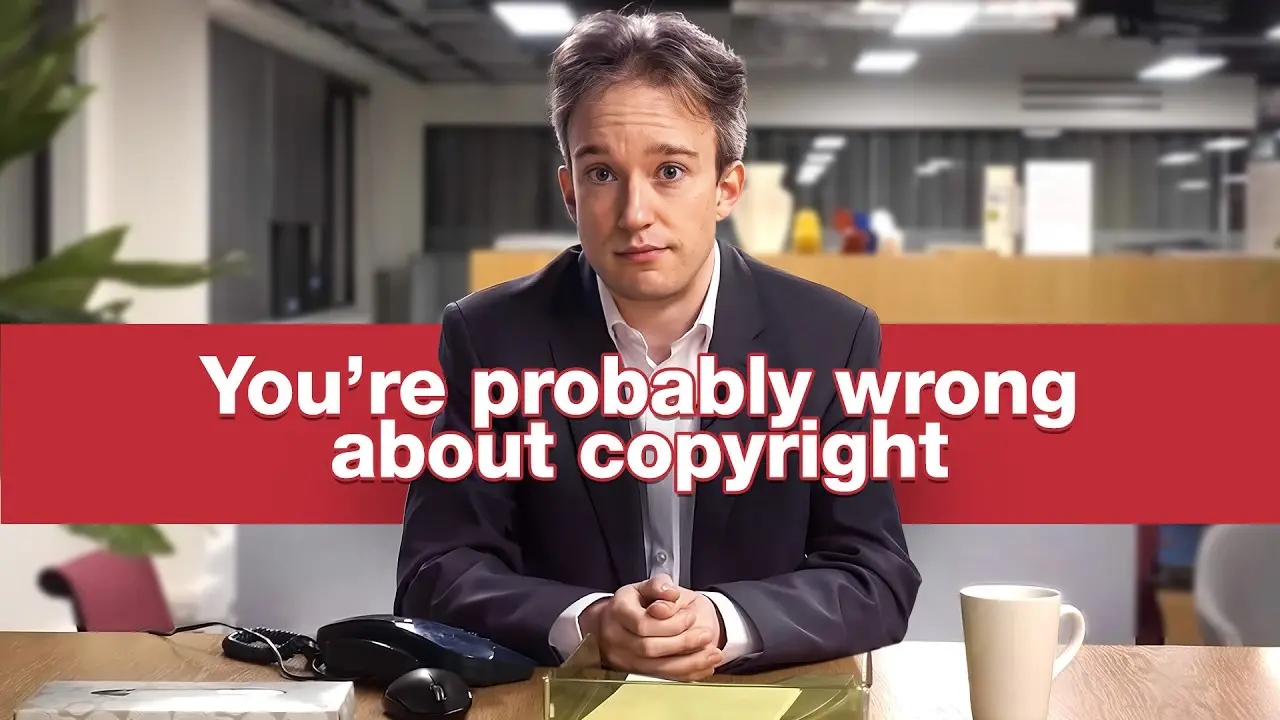- cross-posted to:
- technews@radiation.party
- cross-posted to:
- technews@radiation.party
So recently there has been a lot of debate on AI-generated art and its copyright. I’ve read a lot of comments recently that made me think of this video and I want to highly encourage everyone to watch it, maybe even watch it again if you already viewed it. Watch it specifically with the question “If an AI did it, would it change anything?”
Right now, AI-generated works aren’t copyrightable. https://www.artnews.com/art-news/news/ai-generator-art-text-us-copyright-policy-1234661683/ This means you can not copyright the works produced by AI.
I work in games so this is more seemingly relevant to me than maybe it is to you. https://techcrunch.com/2023/07/03/valve-responds-to-claims-it-has-banned-ai-generated-games-from-steam/ Steam has outright said, earlier this month, that it will not publish games on its platform without understanding if the training data has been of images that aren’t public domain.
So right now, common AI is producing works that are potentially copyright-infringing works and are unable to be copyrighted themselves.
So with this information, should copyright exist, and if not, how do you encourage artists and scientists to produce works if they no longer can make a living off of it?



How does copyright currently help small artists? They sue someone for violating their copyright? You dont need to copyright your game to sell it on steam, itch, etc.
You absolutely need copyrights to sell your game on Steam or itch. The copyright doesn’t need to be actively registered but that’s because you have implicit copyright to the things you create. That said you still need copyright and it’s why Valve is no longer selling games with AI-generated content. Because they can’t prove the content they are selling belongs to the people they are selling it on the behalf of.
Copyright helps small artists by protecting them. You can easily take someone to small claims. Lawyers work pro bono if they are confident in the case. Copyright helps by enforcing that what small artists make is truly theirs. I was working on a small indie game called Squad in 2016 in which someone stole our game assets. A simple notice from our retainer lawyer did the trick.
Sorry, this better not be the reason. Book publishers sell books that are in the public domain all the time. You can publish public domain works on Steam too.
AI generated content is in the public domain.
I’m pretty sure Steam doesn’t want to publish it because they don’t know the provenance of the training material and don’t want to support people using unlicensed works in their training material for their AI model.
That’s not about copyright directly, it’s about choosing what sort of projects to support and publish.
Yes, the public domain belongs to everyone.
That’s correct. They can’t confirm the training data didn’t commit copyright infringement.
Something in the public domain means everyone essentially has the right to copy it in any form. Thus you still need the copyrights to distribute on Steam, even if that copyright is public domain.
I don’t get what you mean by that because it’s entirely about the copyrights of the content and if the owner is allowed to distribute them.
If something is in the public domain, there is no copyright. That’s what public domain means. Now, someone could try to place something into the public domain incorrectly that still has someone else’s copyright claim on it, but LLMs don’t do that (usually): a work created via an LLM is in the public domain. Nobody reserves any rights.
Because there are no rights reserved, there’s no copyright issues.
BUT that doesn’t mean that infringement hasn’t already been committed by the person who created the training set IF you stand by the argument that a training set has no right to include a work unless it’s in the public domain or permission has been granted by any rights holders.
That last bit I covered earlier; it is a philosophical stance people take, but it’s not the only one, and as of now it has no legal backing. Others claim fair use, which pre-empts any copyright claims. And remember, this is about creating the training set and NOT about generative works, which are in the public domain.
Yeah, in the end, that’s going to come down to what is transformative work and if transformative work can be done solely by a tool.
They are only in the public domain if they are transformative works. Otherwise, they are derived works and subject to the original copyright and thus copyright infringing works.
Sure, everyone has the right to copy it. There are no copyrights given out to one person. At this point, that’s just semantics.
That’s the argument though. LLMs potentially are attempting to put works into the public domain by copying them, creating works based on them, then because it’s not made by a human, placing them in the public domain. If the works an LLM is seen as derived from the training set and the training set is copyrighted content then an LLM is creating copyright infringing works and attempting to place them into the public domain.
Copyright does limit abuse, because of the implied threat of lawsuits. If copyright didn’t exist, there is nothing stopping me from taking Stardew Valleys install files and selling them on GreyBeard Game Store and pocketing all the cash myself. With copyright law I have to worry about being sued, so I am less likely to do it. It is important to note, that copyright is inharrent. By making art you have a copyright on that art. Registering a copyrighted work is optional, and it simply streamlines the legal process if you need to take someone to court.
That said, I agree the terms are way too long, and way too favorable to those with money. I wish copyright couldn’t be held by corporations and the max term was more like 20 years, but that will be unlikely to ever happen.